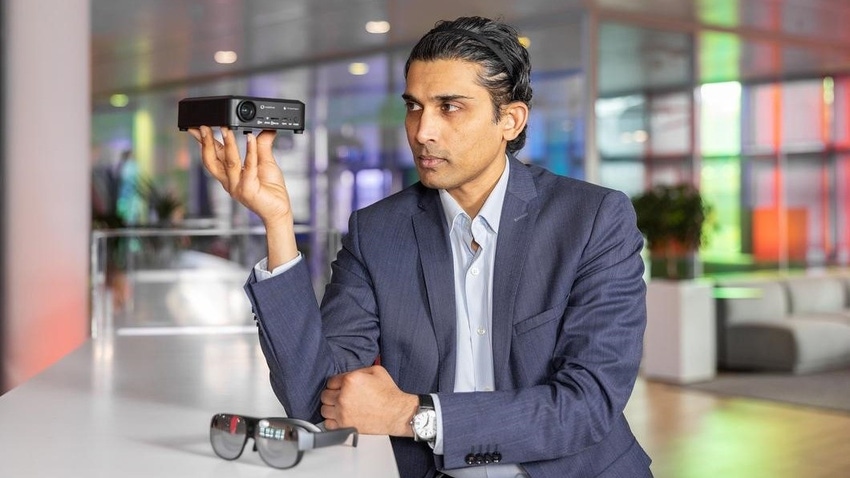Eurobites: Vodafone shrinks the AR headset
Also in today's EMEA regional roundup: Deutsche Telekom clears out the apps; Salt strikes MVNO deal with Swiss Post; Nokia-Dell love-in extended.

Vodafone is doing its bit to shrink those sometimes cumbersome-looking augmented reality (AR) headsets with the launch of its HyperRealityHub, a Snapdragon-powered device that allows for the headset's computing requirements to be shared between the hub, the glasses and the cloud. In addition to the standard HyperRealityHub, Vodafone is also touting the HyperRealityHub+, a variant that can connect multiple users, enabling them to interact in a shared immersive experience using both Wi-Fi 7 and 5G. Vodafone will be showing the device at the forthcoming Mobile World Congress in Barcelona.
Also benefiting from some Snapdragon fairy-dust is Deutsche Telekom's new AI-fueled virtual assistant which, the operator reckons, can clear most apps off users' smartphones. The intelligent assistant is based on technology from Qualcomm and Brain.ai and, says Deutsche Telekom, acts as a clever-clogs "concierge," taking care of tasks such as booking a vacation or work trip without the user having to open half a dozen different apps to complete the task. Again, Mobile World Congress will provide a glimpse of what the technology can do.
Swiss Post has struck a mobile virtual network operator (MVNO) deal with mobile operator Salt, creating the Post Mobile service. Swiss Post has been offering subscriptions, smartphones and telecom accessories from various providers in its branches for over 20 years, but now the company has decided to throw in its telecom lot with a single, exclusive partner.
All of which could be interpreted as something of a snub to national incumbent operator Swisscom. Its Swisscom Ventures unit is about to come under new management as founder and current head Dominique Mégret departs for the CEO role at agricultural tech firm Ecorobotix. Mégret's position at Swiss Ventures will be handed over to the joint management team of Stefan Kuentz, Alexander Schläpfer and Pär Lange.
Nokia has announced an extension of its mutual back-scratching arrangement with Dell. As part of the refreshed agreement, Nokia will adopt Dell as its "preferred" infrastructure partner for existing Nokia AirFrame customers, offering Dell's technology as the infrastructure of choice for telecom cloud deployments.
Users of PCs and laptops will no longer be able to download content from the BBC's iPlayer streaming service, the BBC reports. However, they will still be able to stream content and shows will still be available to download on tablets and phones via the mobile iPlayer app. According to the broadcaster, the changes are a result of the dwindling numbers of people using this particular service and the cost of maintaining it. The iPlayer platform now accounts for 18% of the BBC's total viewing figures, according to Ofcom, the UK communications regulator.
Spanish giant Telefónica is yanking its blockchain again, teaming up with Chainlink to integrate its Functions Web3 connectivity offering, which is used for securely connecting any API on GSMA Open Gateway to Polygon's PoS blockchain network.
UK mobile operator Three has come up smelling of roses in the latest barometer of mobile Internet connections carried out by French company Nperf. In the tests, which are performed by actual users through the Nperf Internet Speed Test app, Three recorded an average download speed of 250.75 Mbit/s and average upload of 27.38 Mbit/s, both of which trumped the speeds offered by rivals EE, O2 and Vodafone.
About the Author(s)
You May Also Like












